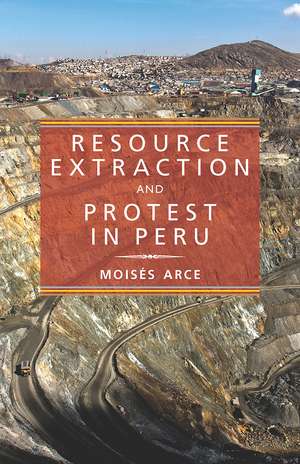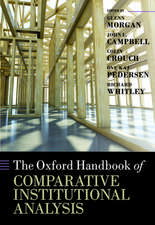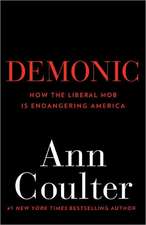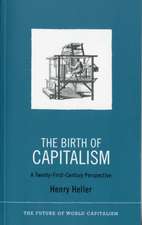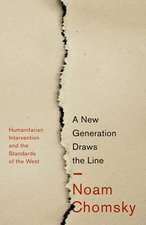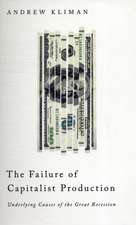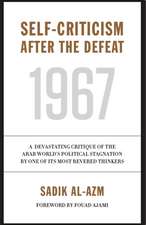Resource Extraction and Protest in Peru: Pitt Latin American Series
Autor Moises Arceen Limba Engleză Paperback – 21 sep 2014
Natural resource extraction has fueled protest movements in Latin America and existing research has drawn considerable scholarly attention to the politics of antimarket contention at the national level, particularly in Ecuador, Bolivia, and Argentina. Despite its residents reporting the third-highest level of protest participation in the region, Peru has been largely ignored in these discussions.
In this groundbreaking study, Moisés Arce exposes a longstanding climate of popular contention in Peru. Looking beneath the surface to the subnational, regional, and local level as inception points, he rigorously dissects the political conditions that set the stage for protest. Focusing on natural resource extraction and its key role in the political economy of Peru and other developing countries, Arce reveals a wide disparity in the incidence, forms, and consequences of collective action.
Through empirical analysis of protest events over thirty-one years, extensive personal interviews with policymakers and societal actors, and individual case studies of major protest episodes, Arce follows the ebb and flow of Peruvian protests over time and space to show the territorial unevenness of democracy, resource extraction, and antimarket contentions. Employing political process theory, Arce builds an interactive framework that views the moderating role of democracy, the quality of institutional representation as embodied in political parties, and most critically, the level of political party competition as determinants in the variation of protest and subsequent government response. Overall, he finds that both the fluidity and fragmentation of political parties at the subnational level impair the mechanisms of accountability and responsiveness often attributed to party competition. Thus, as political fragmentation increases, political opportunities expand, and contention rises. These dynamics in turn shape the long-term development of the state.
Resource Extraction and Protest in Peru will inform students and scholars of globalization, market transitions, political science, contentious politics and Latin America generally, as a comparative analysis relating natural resource extraction to democratic processes both regionally and internationally.
In this groundbreaking study, Moisés Arce exposes a longstanding climate of popular contention in Peru. Looking beneath the surface to the subnational, regional, and local level as inception points, he rigorously dissects the political conditions that set the stage for protest. Focusing on natural resource extraction and its key role in the political economy of Peru and other developing countries, Arce reveals a wide disparity in the incidence, forms, and consequences of collective action.
Through empirical analysis of protest events over thirty-one years, extensive personal interviews with policymakers and societal actors, and individual case studies of major protest episodes, Arce follows the ebb and flow of Peruvian protests over time and space to show the territorial unevenness of democracy, resource extraction, and antimarket contentions. Employing political process theory, Arce builds an interactive framework that views the moderating role of democracy, the quality of institutional representation as embodied in political parties, and most critically, the level of political party competition as determinants in the variation of protest and subsequent government response. Overall, he finds that both the fluidity and fragmentation of political parties at the subnational level impair the mechanisms of accountability and responsiveness often attributed to party competition. Thus, as political fragmentation increases, political opportunities expand, and contention rises. These dynamics in turn shape the long-term development of the state.
Resource Extraction and Protest in Peru will inform students and scholars of globalization, market transitions, political science, contentious politics and Latin America generally, as a comparative analysis relating natural resource extraction to democratic processes both regionally and internationally.
Din seria Pitt Latin American Series
-
 Preț: 385.18 lei
Preț: 385.18 lei -
 Preț: 405.31 lei
Preț: 405.31 lei -
 Preț: 380.54 lei
Preț: 380.54 lei -
 Preț: 387.08 lei
Preț: 387.08 lei -
 Preț: 349.22 lei
Preț: 349.22 lei -
 Preț: 345.47 lei
Preț: 345.47 lei -
 Preț: 383.71 lei
Preț: 383.71 lei -
 Preț: 308.57 lei
Preț: 308.57 lei -
 Preț: 350.13 lei
Preț: 350.13 lei -
 Preț: 350.13 lei
Preț: 350.13 lei -
 Preț: 330.30 lei
Preț: 330.30 lei -
 Preț: 351.08 lei
Preț: 351.08 lei -
 Preț: 346.43 lei
Preț: 346.43 lei -
 Preț: 334.30 lei
Preț: 334.30 lei -
 Preț: 313.24 lei
Preț: 313.24 lei -
 Preț: 353.31 lei
Preț: 353.31 lei -
 Preț: 412.78 lei
Preț: 412.78 lei -
 Preț: 434.29 lei
Preț: 434.29 lei -
 Preț: 378.30 lei
Preț: 378.30 lei -
 Preț: 365.04 lei
Preț: 365.04 lei - 17%
 Preț: 384.05 lei
Preț: 384.05 lei -
 Preț: 425.47 lei
Preț: 425.47 lei -
 Preț: 346.43 lei
Preț: 346.43 lei -
 Preț: 383.71 lei
Preț: 383.71 lei -
 Preț: 345.84 lei
Preț: 345.84 lei -
 Preț: 420.23 lei
Preț: 420.23 lei -
 Preț: 385.39 lei
Preț: 385.39 lei -
 Preț: 349.22 lei
Preț: 349.22 lei -
 Preț: 380.54 lei
Preț: 380.54 lei -
 Preț: 344.15 lei
Preț: 344.15 lei -
 Preț: 390.80 lei
Preț: 390.80 lei -
 Preț: 345.47 lei
Preț: 345.47 lei -
 Preț: 350.13 lei
Preț: 350.13 lei -
 Preț: 418.38 lei
Preț: 418.38 lei -
 Preț: 346.43 lei
Preț: 346.43 lei -
 Preț: 488.48 lei
Preț: 488.48 lei -
 Preț: 320.69 lei
Preț: 320.69 lei -
 Preț: 376.99 lei
Preț: 376.99 lei -
 Preț: 352.03 lei
Preț: 352.03 lei -
 Preț: 319.79 lei
Preț: 319.79 lei -
 Preț: 135.39 lei
Preț: 135.39 lei -
 Preț: 341.72 lei
Preț: 341.72 lei -
 Preț: 339.87 lei
Preț: 339.87 lei -
 Preț: 411.82 lei
Preț: 411.82 lei -
 Preț: 341.57 lei
Preț: 341.57 lei -
 Preț: 341.72 lei
Preț: 341.72 lei -
 Preț: 379.59 lei
Preț: 379.59 lei -
 Preț: 331.84 lei
Preț: 331.84 lei -
 Preț: 316.04 lei
Preț: 316.04 lei -
 Preț: 387.08 lei
Preț: 387.08 lei
Preț: 306.67 lei
Nou
Puncte Express: 460
Preț estimativ în valută:
58.70€ • 61.18$ • 48.86£
58.70€ • 61.18$ • 48.86£
Carte tipărită la comandă
Livrare economică 04-18 ianuarie 25
Preluare comenzi: 021 569.72.76
Specificații
ISBN-13: 9780822963097
ISBN-10: 0822963094
Pagini: 200
Ilustrații: 7 b&w
Dimensiuni: 140 x 216 x 15 mm
Greutate: 0.27 kg
Ediția:1
Editura: University of Pittsburgh Press
Colecția University of Pittsburgh Press
Seria Pitt Latin American Series
ISBN-10: 0822963094
Pagini: 200
Ilustrații: 7 b&w
Dimensiuni: 140 x 216 x 15 mm
Greutate: 0.27 kg
Ediția:1
Editura: University of Pittsburgh Press
Colecția University of Pittsburgh Press
Seria Pitt Latin American Series
Recenzii
“. . . Arce pushes the social movement literature into new dimensions . . . Resource Extraction offers indispensable reading for social movement scholars in the fields of sociology, political science, anthropology, history, and Latin American studies.’
—The Historian
—The Historian
“Moisés Arce delivers an important book. Against the tide of conventional wisdom, he masterfully shows that sporadic, seemingly isolated protests against natural resource extraction at the subnational level, when aggregated, do have significant national policy effects. Drawing on a wealth of evidence, Arce insightfully combines political science and social movement theory to reveal the links between democracy, party competition, and variation in antimarket protest at the subnational level in Peru. The book has tremendous comparative implications for anyone studying protest against the ‘new extractivism’ elsewhere in Latin America.”
—Eduardo Silva, Tulane University
—Eduardo Silva, Tulane University
“Why, at a time of unprecedented democracy and economic abundance, do we see rising levels of protest in Peru and elsewhere in Latin America? Moisés Arce’s book offers a compelling explanation. Mining activities in Latin America have expanded much more rapidly than our understanding of their consequences. Resource Extraction and Protest in Peru is thus a timely and important contribution. I recommend it to all students of Latin American politics.”
—Steven Levitsky, Harvard University
—Steven Levitsky, Harvard University
Notă biografică
Moisés Arce is professor of political science at the University of Missouri. He is the author of Market Reform in Society: Post-Crisis Politics and Economic Change in Authoritarian Peru.
Descriere
In this groundbreaking study, Moisés Arce exposes a longstanding climate of popular contention in Peru. Looking beneath the surface to the subnational, regional, and local level as inception points, he rigorously dissects the political conditions that set the stage for protest. Focusing on natural resource extraction and its key role in the political economy of Peru and other developing countries, Arce reveals a wide disparity in the incidence, forms, and consequences of collective action.
